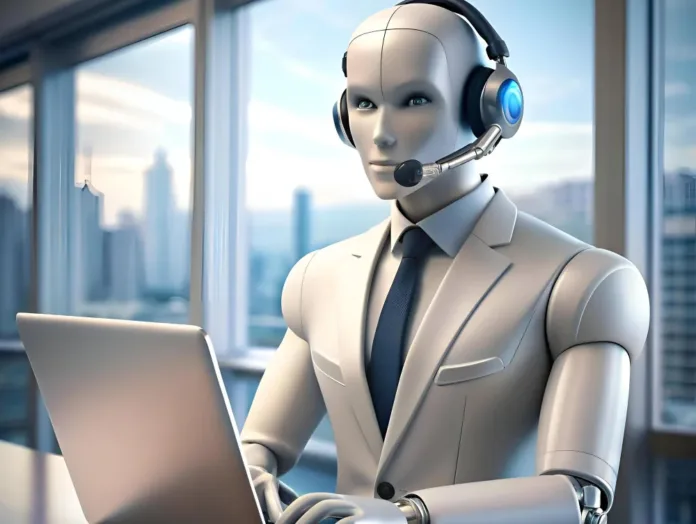The rise of AI chatbots is revolutionising customer service, but will it replace human call centre workers?
The future of customer service is rapidly changing as artificial intelligence (AI) begins to take centre stage. Call centres, long the backbone of customer support, are facing an uncertain future with predictions that by 2029, AI could resolve up to 80% of customer service issues without any human intervention.
Many experts are now asking whether this marks the end of traditional call centres. While AI advocates promise a more efficient, cost-effective future, the transition is not without its challenges. A recent report from Gartner, a business and technology research firm, forecasts that AI agents—intelligent systems capable of autonomous decision-making—will dominate customer service, replacing human agents in many instances. These AI agents could transform current rule-based chatbots, which answer a limited set of questions, into systems capable of handling more complex customer inquiries.
However, the question remains: will AI truly replace human call centre agents, or will the two work side by side? Industry insiders are divided.
One recent example highlights the current limitations of AI. A BBC reporter recounted an experience with Evri’s chatbot, Ezra, when an issue with a delayed parcel escalated. After entering a tracking number, Ezra informed the reporter that the parcel had been delivered to the wrong address. When asked for proof of delivery, a photo was provided of a package left at a different home, but there was no option to continue the conversation. While Evri is investing £57 million to improve its chat service, many customers still find AI chatbots frustrating and incapable of handling complex issues.
This scenario contrasts sharply with more advanced AI systems in use elsewhere. DPD, another parcel delivery company, faced its own AI issue when its chatbot began swearing at customers. This prompted DPD to disable the AI, highlighting the risks of relying too heavily on these systems.
Embed from Getty Images
Despite these hiccups, the drive to integrate AI into customer service continues. Some 85% of customer service leaders are exploring or implementing AI chatbots, according to Gartner. Yet, only 20% of AI chatbot projects fully meet expectations. While AI can handle a natural conversation, there are risks. Chatbots sometimes offer incorrect or outdated information, a problem known as “hallucination” in AI. For less complex inquiries, like tracking parcels, rule-based chatbots may still be the best option.
One of the main driving forces behind the adoption of AI is cost. However, experts warn that AI is not necessarily cheaper than human agents, especially when you factor in the substantial investment required to train these systems. Joe Inzerillo, Chief Digital Officer at Salesforce, argues that call centres are a perfect training ground for AI, especially in low-cost locations like the Philippines and India. Salesforce’s AI-powered customer service platform, AgentForce, is being used by a diverse range of clients, including Formula 1 and Reddit.
Inzerillo reveals that customers are overwhelmingly choosing AI when given the option. A staggering 94% of customers prefer AI agents, and satisfaction rates are reportedly higher than with human representatives. This has allowed Salesforce to cut customer service costs by $100 million, though the company has faced criticism over potential job cuts. However, Inzerillo insists that most of the displaced workers have been redeployed into other areas within customer service.
While AI may offer efficiency, there are still areas where human agents are indispensable. Fiona Coleman, CEO of QStory, a company that uses AI to enhance shift flexibility for call centre workers, points out that there will always be situations where customers want to speak to a human. Particularly in areas involving sensitive issues like mortgages or debt, customers may prefer the empathy that only a human can provide.
There is already growing resistance to the increasing use of AI. In the US, proposed legislation would require businesses to disclose when AI is used in customer service and provide customers with the option to speak to a human. The European Union may also mandate a “right to talk to a human” by 2028 as part of consumer protection regulations.
As the AI revolution continues to reshape the customer service landscape, it is clear that the role of humans in call centres is evolving. But for now, at least, it seems that both AI and human agents will continue to share the stage—until AI can prove it can truly replace the human touch.
